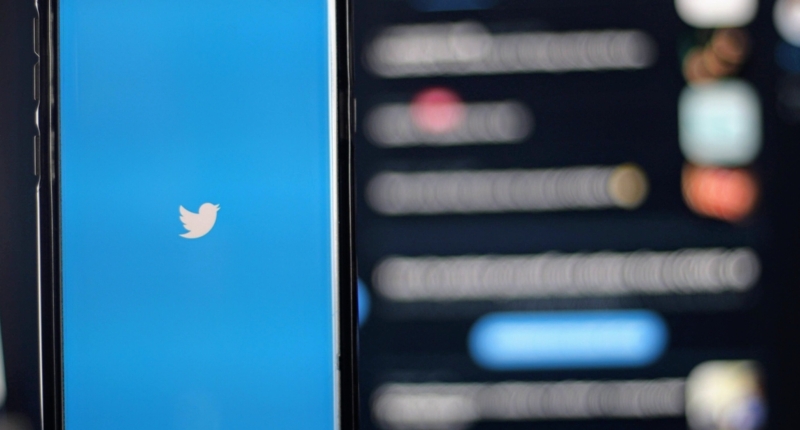A team of researchers from NYU Tandon School of Engineering used Twitter to measure nuanced negative sentiment and identify neighborhoods in New York City where systemic racism and homophobia have taken hold. The study discovered that Twitter data can provide a valid proxy for on-the-ground attitudes in a given location, making it possible to measure the impact of place-based negative sentiment on mental health for diverse groups of people. The researchers recruited 147 young Black, white, and Hispanic men in New York City who identify as gay or bisexual and asked them to wear GPS tracking devices while self-reporting their mental health. By combining the Twitter sentiment, GPS tracking, and self-reported mental health status, the researchers conducted a regression analysis and found that Black and white non-Hispanic men reported significantly more poor mental health days compared to Hispanic men when exposed to high levels of negative racial attitudes. The researchers believe that this type of research using Twitter data can provide valuable information that can be used to improve mental health for diverse groups of people.
Twitter May Help Identify NYC Neighborhoods with Systemic Racism and Homophobia, According to Researchers
Researchers from NYU Tandon School of Engineering have found that Twitter can be used to pinpoint neighborhoods in New York City where systemic racism and homophobia are prevalent. This discovery could help measure the mental-health impact on diverse groups of people who spend time in these areas.
The researchers divided the entire city into more than 200 geographic clusters, each with its own level of racism and homophobia, and used Twitter as a proxy to measure nuanced negative sentiment. The sentiment analysis relied on a novel technique called socio-spatial self-organizing maps (SS-SOMs), in which the team applied a combination of keyword filtering, labeling, and iterative learning to Twitter posts generated in New York City.
By drawing boundaries around small areas based on similar racial and sexual-orientation attitudes expressed in tweets, the researchers identified precise neighborhoods where systemic racism and homophobia have taken hold. This is in contrast to typical analyses of structural discrimination that rely on public records like census or housing data.
The team then recruited 147 young Black, white, and Hispanic men in New York City who identify as gay or bisexual to wear GPS tracking devices for a two-week period. Participants self-reported their mental health during that time, including feelings of stress or depression.
The resulting data from Twitter sentiment, GPS tracking, and self-reported mental health status were used to conduct a regression analysis that investigated how spending time in places with negative attitudes about race or sexual orientation affected the men’s mental well-being. The researchers also examined whether the participant’s race or ethnicity affected this relationship.
This pioneering study, published in Social Science & Medicine, showcases the potential of Twitter data to identify specific areas where systemic racism and homophobia have a negative impact on mental health. The study’s results can inform public health interventions and policies to combat the harmful effects of discrimination.
NYU Study: Twitter Provides Valuable Insight into Impact of Racism and Homophobia on Mental Health
A team of researchers from NYU Tandon School of Engineering has conducted a pioneering study to examine the impact of systemic racism and homophobia on the mental health of young sexual minority men. The study, published in Social Science & Medicine, discovered that Twitter data can provide a valid proxy for on-the-ground attitudes in a given location, making it possible to measure the impact of place-based negative sentiment on mental health for diverse groups of people.
The researchers divided New York City into over 200 geographic clusters and used Twitter to measure nuanced negative sentiment that can permeate the cultural climate of specific locations. The sentiment analysis relied on a novel technique called socio-spatial self-organizing maps (SS-SOMs), in which the team applied a combination of keyword filtering, labeling, and iterative learning to Twitter posts generated in New York City. With the resulting data, they drew boundaries around small areas based on the similar racial and sexual-orientation attitudes expressed in the postings.
The team recruited 147 young Black, white, and Hispanic men in New York City who identify as gay or bisexual and asked them to wear GPS tracking devices for a two-week period while self-reporting their mental health. By combining the Twitter sentiment, GPS tracking, and self-reported mental health status, the researchers conducted a regression analysis that investigated how spending time in places with negative attitudes about race or sexual orientation affected the men’s mental well-being. The researchers also examined whether the participant’s race or ethnicity affected this relationship.
The study concludes that a complex relationship exists between the time participants spent in areas with higher levels of racist and homophobic sentiment and their mental well-being. The researchers found that Black and white non-Hispanic men reported significantly more poor mental health days compared to Hispanic men when exposed to high levels of negative racial attitudes.
The researchers believe that this type of research using Twitter data can provide valuable information that can be used to improve mental health for diverse groups of people. “It lays the foundation for future research that can use novel tools like SS-SOMs that we’ve tested and fine-tuned in this project, to explore these issues more deeply in bigger studies,” said Chunara, one of the researchers involved in the study.
Don’t miss interesting posts on Famousbio
